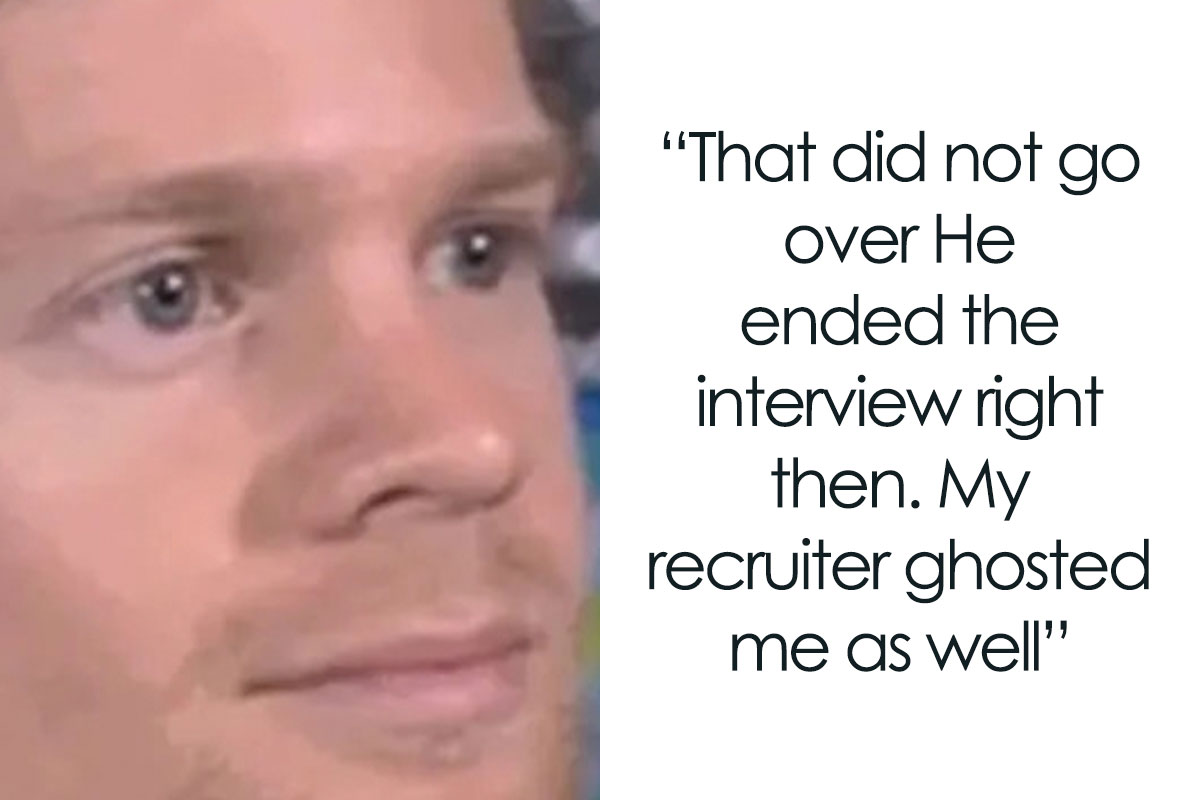
Netizens Back This Man Mocking The Expectation To Express Over-The-Top Motivation In Job Interviews
Have you ever wondered how open or honest you should be during a job interview? One thing can be told for sure: while honesty can’t be ruled out as bearing no significance whatsoever, it can’t be made absolute either. It’s a job interview, not an honesty contest, after all! And while every specific situation might require one’s judgment about how deep to dig into their darkest secrets, this Redditor has tested one for you and brought the results to a wider audience for those who wonder about “what if” and “why not” and other folks added to this point, making some hilarious comments about related real-life and make-believe scenarios.
More info: Reddit
An interviewer cut the job interview short after an honest answer from an applicant
Image credits: Tima Miroshnichenko (not the actual photo)
After being repeatedly pestered by a recruiter, the man agreed to take the interview
Image credits: u/Decent-Photographe391
Image credits: Tima Miroshnichenko (not the actual photo)
Image credits: u/Decent-Photographe391
The interview was uneventful until the interviewee asked the man why he wanted this job
Image credits: Andrew Neel (not the actual photo)
The applicant refrained from saying he actually didn’t want the job and was only pestered by the recruiter
A man brought it to Reddit that he was repeatedly pestered by a recruiter to take a phone interview, which he eventually agreed to do. However, during the interview, the man was asked a common question: why did he want that specific job?
And while the man refrained from admitting he didn’t even want that job and only went for an interview after being continuously pestered by the recruiter, he told the interviewer he wanted it so he could pay his bills.
Curiously enough, the interviewer didn’t even proceed with the interview as he ended it straight away. Similarly, the recruiter ghosted the man as well.
A redditor under the name Southern-Beautiful-3 shared the opposite experience, as they once answered they wanted the job “To support themselves in the manner in which they have become accustomed, living indoors and eating regularly”, and got the job.
While sobo_art1 joked about the applicant overdoing it with: “It has always been my lifelong dream to advance society and drive humanity forward into a new golden age by…checks notes… putting flavored sugar water into disposable containers.”
There probably isn’t a straightforward answer whether it is acceptable to provide the sole reason of paying bills as one’s motivation when applying for a job; it most likely wouldn’t be considered an inspiring or strong answer in most cases, though. As a person who is not willing to look for any positive sides of the specific role he is applying for, it hardly comes off as motivated or having an effective mindset.
The man answered he wanted the job “to pay his bills” instead
Image credits: Magnet.me (not the actual photo)
The interviewer cut the interview short straight away, while the recruiter ghosted the man as well
During a job interview, candidates are usually asked about the qualities they are willing to exhibit for their employer and not about something else, therefore mistaking a moderate amount of honesty appropriate for an interview with oversharing and expecting it to add some extra points in karma currency to one’s interview answers might be out of place.
This is not to say that a person personally might not feel too fond of a job position they are applying for, but that family and friends are probably a better audience for being completely honest about one’s motivation in such cases to make sure to stay attuned to one’s true self and maybe have some fun about it, as these Redditors did.
In their study Underestimating the Importance of Expressing Intrinsic Motivation in Job Interviews, Katlin Woolley and Ayelet Fishbach observed that job candidates tended to misjudge how much recruiters valued intrinsic motivation, for example, learning that a candidate desired interesting and meaningful work.
Candidates, however, were more accurate in predicting how much recruiters valued extrinsic motivation, for example, learning that a candidate was interested in advancing their career.
Researchers backed their research with various other studies, noting that intrinsic and extrinsic motivation are central to recruiting as well as the workplace itself. They explained that when people do something for the sake of pursuing the activity, they are intrinsically motivated – they find the process rewarding and the means and the ends collide.
According to the researchers, due to the misprediction about how much recruiters valued intrinsic motivation, candidates often failed to express their intrinsic motivation during interviews, unless encouraged to take the recruiters’ perspective.
Redditors shared their takes on the situation as well as some similar real-life and make-believe scenarios
If I was being interviewed I would much prefer the "Why do you want this job?" question (even if I had to say BS) than a stupid "If you were a vegetable what vegetable would you be?" type question
“I’m not a vegetable, so if I were one I would have to be a tomato because that’s not a vegetable either.”
Load More Replies...my last company interviewed me for a promotion, it was a competency based interview, so the person with the best score gets the job. I got the best score, but they felt that someone else had shown more passion in their interview than I, so decided to pass the offer on to them. I left after completing my notice period with them and managed to get a better paying job with less responsibility by just being myself.
I don't generally ask that question in interview unless I am genuinely curious, but I have been asked it. There is a difference between having an interest in what the job does, and it being your undying passion. And the answer to that question can give an indication of what sort of employee you will be, and if you have the right idea of what the job entails. That being said, I wouldn't immediately end an interview if I didn't like something that was said or done unless it was completely unacceptable. An answer like that would make me change tack and ask a different question to find out what their motivation is beyond money. We're all there because we have bills to pay after all.
I don't really remember asking it much either. The only time I can recall it being asked in an interview was when the guy was overqualified but was applying from another state. His answer was something along the lines of he wanted to come back home to be closer to family and he didn't mind that the job was "lesser" than what he'd previously been doing. It was a good answer, but it also meant that he'd likely have left as soon as he could find a better job too.
Load More Replies...If I was being interviewed I would much prefer the "Why do you want this job?" question (even if I had to say BS) than a stupid "If you were a vegetable what vegetable would you be?" type question
“I’m not a vegetable, so if I were one I would have to be a tomato because that’s not a vegetable either.”
Load More Replies...my last company interviewed me for a promotion, it was a competency based interview, so the person with the best score gets the job. I got the best score, but they felt that someone else had shown more passion in their interview than I, so decided to pass the offer on to them. I left after completing my notice period with them and managed to get a better paying job with less responsibility by just being myself.
I don't generally ask that question in interview unless I am genuinely curious, but I have been asked it. There is a difference between having an interest in what the job does, and it being your undying passion. And the answer to that question can give an indication of what sort of employee you will be, and if you have the right idea of what the job entails. That being said, I wouldn't immediately end an interview if I didn't like something that was said or done unless it was completely unacceptable. An answer like that would make me change tack and ask a different question to find out what their motivation is beyond money. We're all there because we have bills to pay after all.
I don't really remember asking it much either. The only time I can recall it being asked in an interview was when the guy was overqualified but was applying from another state. His answer was something along the lines of he wanted to come back home to be closer to family and he didn't mind that the job was "lesser" than what he'd previously been doing. It was a good answer, but it also meant that he'd likely have left as soon as he could find a better job too.
Load More Replies...
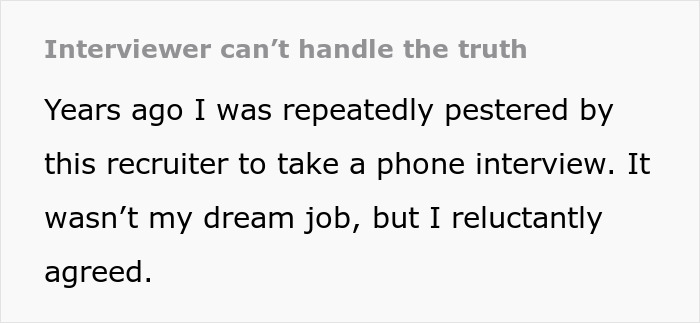


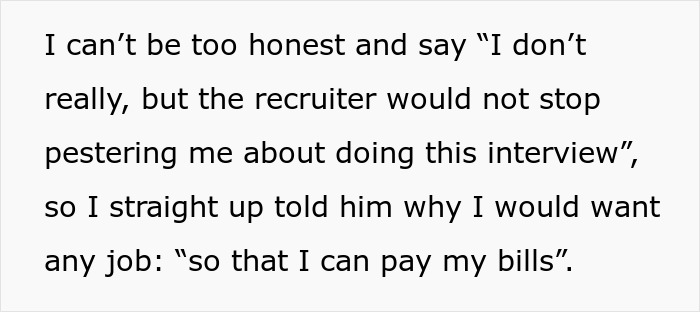

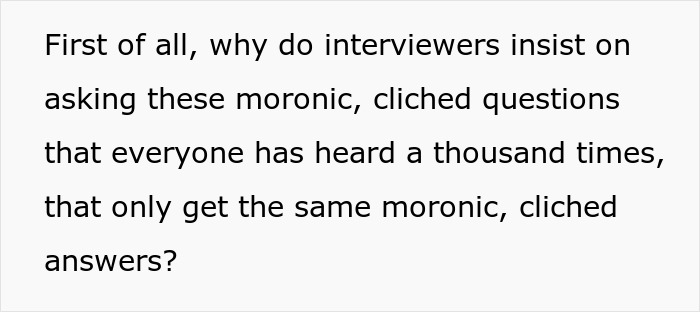
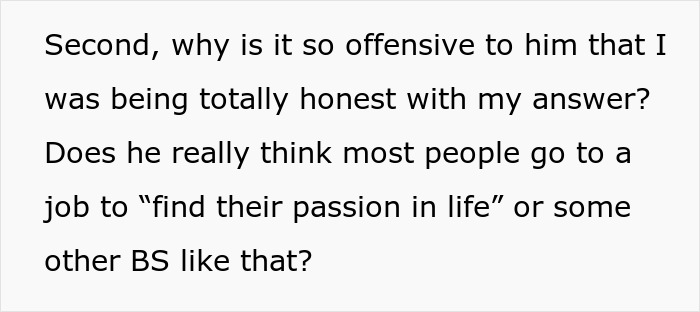


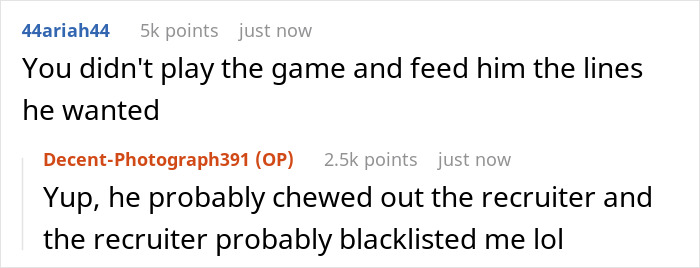
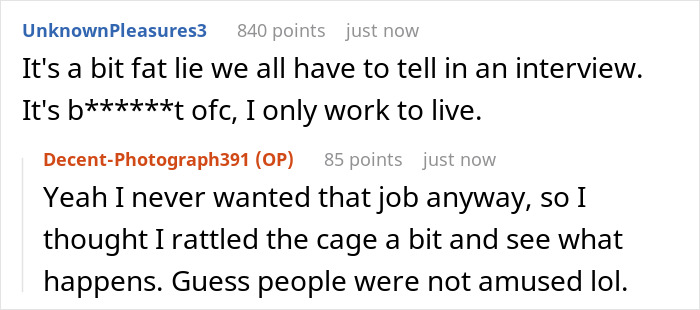
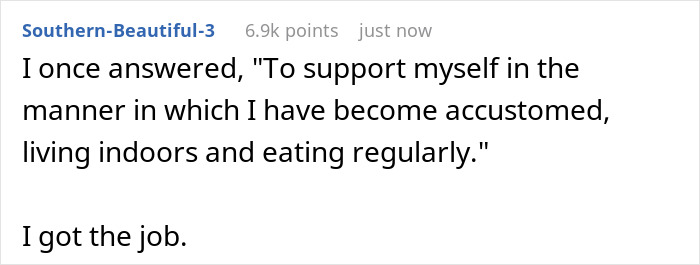

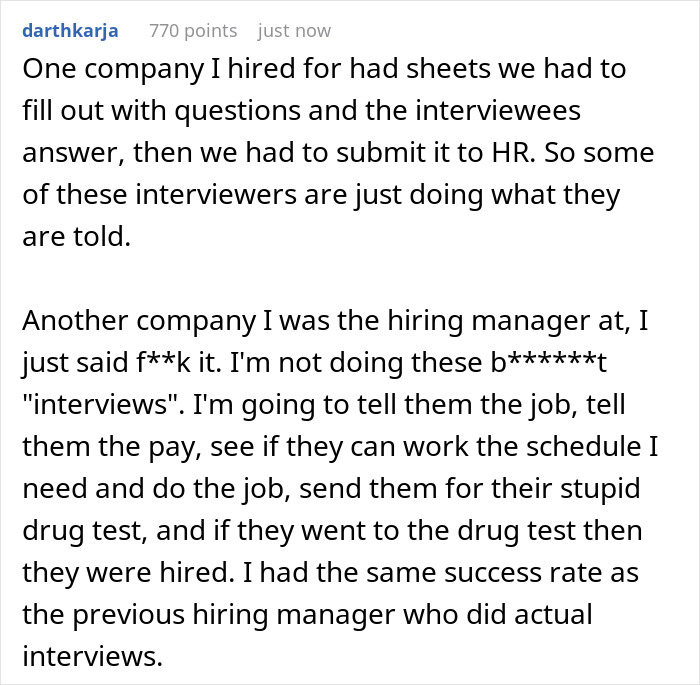
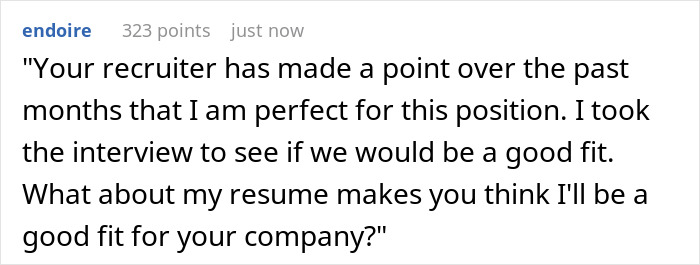
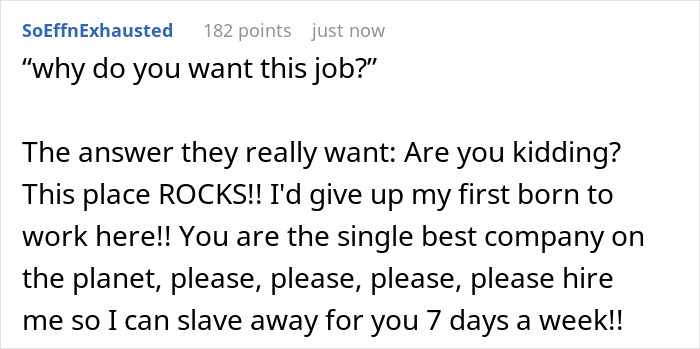
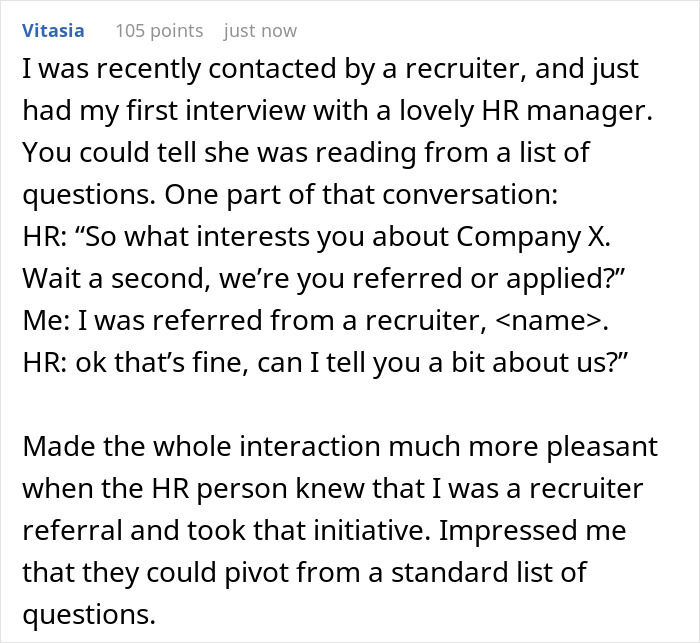

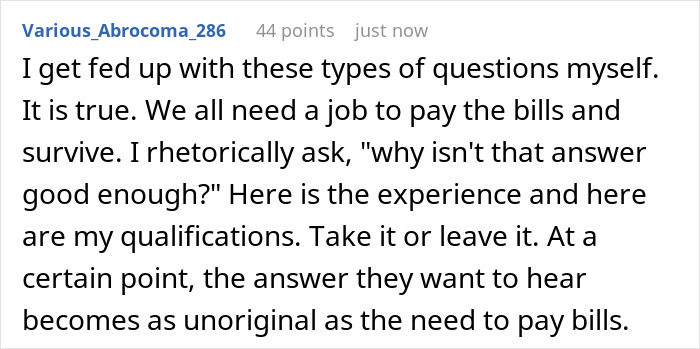





62
27